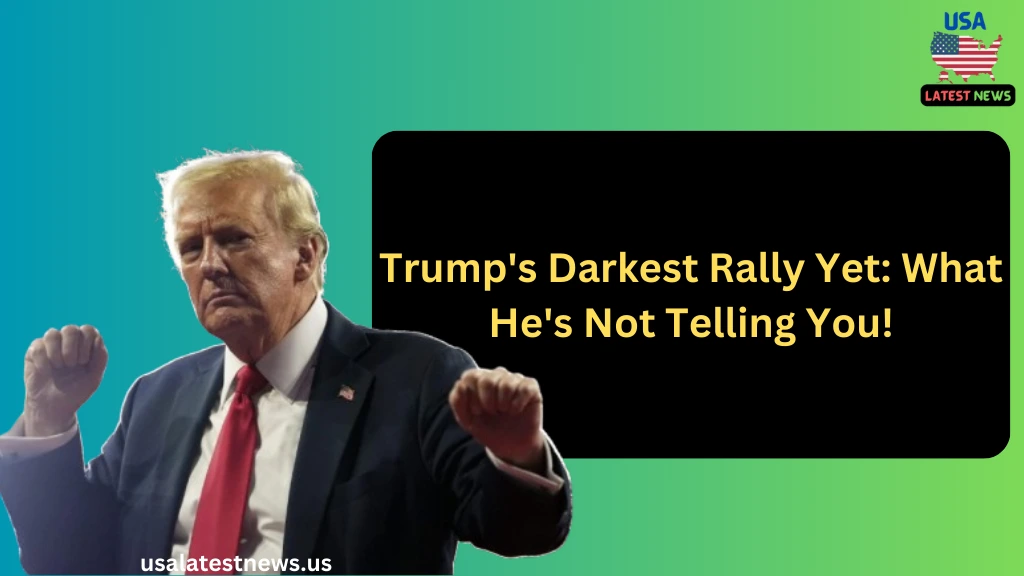Trump’s Escalating Rhetoric: A Dangerous Shift in Campaign Language – WISCONSIN – At a recent rally in western Wisconsin, Donald Trump, the Republican presidential nominee, captivated supporters with his characteristic fiery rhetoric. However, he interrupted himself mid-sentence to assure attendees that he would eventually return to his iconic message of “making America great again.“
“We’re going to do that … don’t worry … We haven’t gotten to that part yet,” he said during his speech in Prairie Du Chien on September 28, acknowledging the dark tone of his discourse.
This moment was just one of many intense speeches Trump has delivered recently, suggesting an alarming escalation in his inflammatory language during his third presidential campaign. Political opponents are no longer just “incompetent” but now labeled as “mentally impaired,” and immigrants are depicted as violent threats.
A Surge in Negative Language
According to a New York Times analysis, Trump’s use of negative language has surged by 32% compared to 21% in his 2016 campaign. The average length of his speeches has also increased dramatically, averaging 82 minutes this time around versus 45 minutes in 2016.
A UCLA study confirms that Trump’s employment of violent rhetoric has intensified over time. His supporters often chant “fight, fight, fight!”—a mantra that resonates with Trump’s own call to arms after surviving assassination attempts at rallies.
The Call for Unity Amidst Chaos
Following violent incidents, Trump has urged unity, memorializing victims while insisting that America faces grave internal threats. “We have an evil world, we have a very sick world,” he asserted, framing his rhetoric as a necessary response to perceived dangers.
Political analysts, like Texas A&M University’s Jennifer Mercieca, suggest that Trump’s language becomes more aggressive when he feels vulnerable or threatened. This year, Trump has painted a bleak picture of what could happen under Democratic leadership, portraying Kamala Harris and Joe Biden as not only incompetent but dangerously unfit to govern.
Democrats Join the Rhetorical Fray
Democrats have also adopted dark rhetoric during this election cycle, warning that a Trump victory could threaten democracy. With Biden now out of the race, Harris has shifted the focus of her campaign towards themes of “freedom” while cautioning about the risks of a Trump presidency.
The Strategy Behind the Darkness
Despite the increased negativity, Trump has made vague promises about addressing economic issues and immigration policy. Analysts attribute this shift in tone to a sense of urgency, as polling indicates a closer race in crucial swing states.
Critics argue that Trump’s rhetoric has increasingly strayed from reality. Liz Mair, an anti-Trump Republican consultant, points out that many of his recent claims lack factual basis, illustrating a troubling departure from truth.

1 thought on “Donald Trump Amplifies His Pre-Election Rhetoric: What Voters Need to Know!”